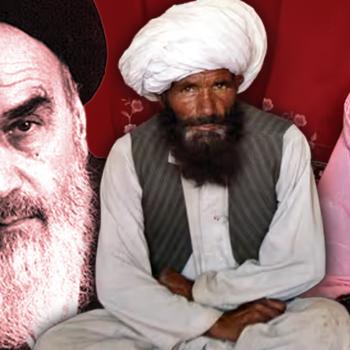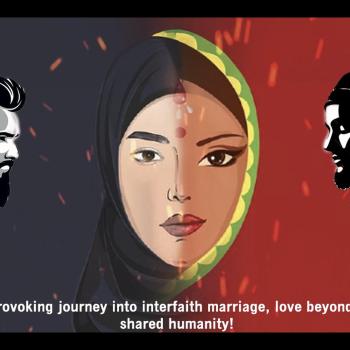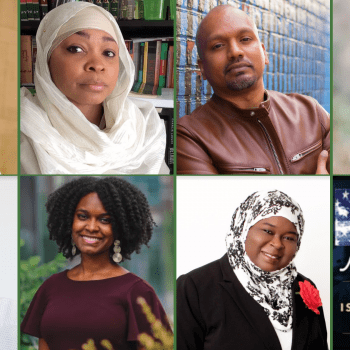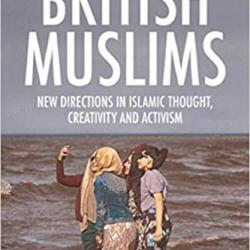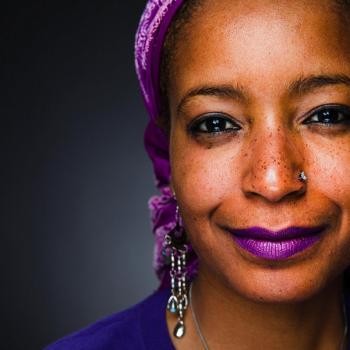 NbA Muslims
NbA Muslims
Muslims from across the United States and Canada participated in a national conversation to share ideas on how American Muslims can support the efforts by Native Americans to preserve their lands at Standing Rock.
Moderated by Muslim Anti-Racism Collaborative (MuslimARC) executive director Namira Islam, the call included the following presenters:
Dustin Craun, MPower Change
Hind Makki- author of “Why I Stand with Standing Rock #NoDAPL”
Margari Hill- MuslimARC
Each presenter shared their perspectives on the importance of a concerted American Muslim effort in supporting Native American Muslims and indigenous Americans in the present
Islam provided information about Standing Rock to call participants.
“There are over 280 Native American tribes from various locations [including] Hawaii, South America, Central America who have come at this point. The whole campaign #SupportStandingRock is to take a stand for environmental and racial justice. It is also that aspect of protection instead of protest. The Standing Rock Sioux community is fighting an oil pipeline, a 3.7-billion-dollar project, that will go across four states under the Missouri River. It passes just a mile north of the Standing Rock Sioux reservation.
This entire plan began on federal lands by the Army Corp of Engineers without consent of the tribe. For months the tribe has organized non-violent protests, and on September 3rd, the water protectors were met with private security, pepper sprayed, attacked by dogs, and lots of violence.”
Islam informed listeners that the present justifiable fight to prevent the Dakota Access Pipeline relates to similar existing pipelines and the contamination to Native American tribal lands.
“A number of other pipelines, including the Keystone pipeline, San Francisco-Pablo Bay pipeline have been leaking, causing environmental problems all across the country. Indigenous tribes have been disproportionately affected by this toxic industrial contamination, which really amounts to this problem of environmental racism. Tribes are coping with irradiated lands and contaminated groundwater.”
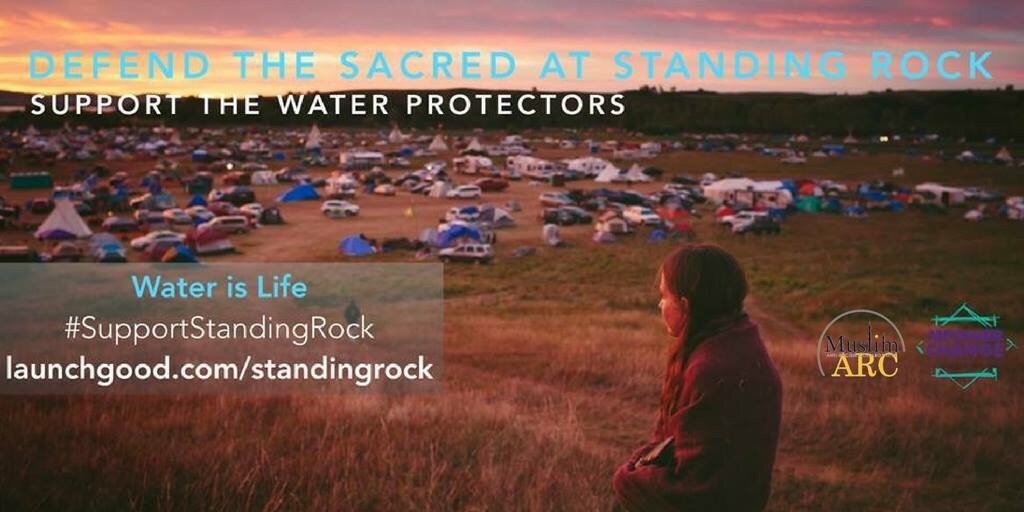 Dustin Craun of MPower Change talked about historical aspects of the present protests at Standing Rock stemming from the continuum of oppression inflicted on Native Americans by the U.S. government.
Dustin Craun of MPower Change talked about historical aspects of the present protests at Standing Rock stemming from the continuum of oppression inflicted on Native Americans by the U.S. government.
“What happened here is the greatest act of a continuous series of genocide in the history of the world. It started in 1492, and it hasn’t ended. This land was not attained properly. This land was clearly colonized. There were thousands of broken treaties, and as Muslims, we must question our standing on this lands that were obtained illegally.”
Craun also mentions the erasure of the Native American experience by the broader American Culture.
“There are so many layers of erasure in this country with indigenous history. Even someone like President Obama can give his famous speech about race, but in that speech he says, the original sin of this country is slavery. No doubt that is one of the original sins of slavery, but slavery in American would not have been possible without the indigenous holocaust that preceded it. One sin is largely unrecognized.”
Activist Hind Makki shared her experience at Standing Rock and correlated the placement of human beings as global vicegerents in the Quran (Surah Al-Baqarah 2:30) with efforts of hundreds of native tribes to protect the Missouri River from the Dakota Access oil pipeline, a project to lay pipe to transport crude oil from the Bakken region of North Dakota through South Dakota and Iowa into Illinois.
“Human beings are considered khulifah fil Ard, the vicegerents or the protectors of the earth. This is not just for Muslims but for all human beings. [We] have a natural connection from our faith with our indigenous sisters and brothers. We have to work tangibly and offer tangible support in solidarity with our indigenous sisters and brothers.”
MuslimARC program director Margari Aziza explained the importance of appreciating Standing Rock as part of shared liberation efforts.
“This is a liberatory project that can free us all. Thinking about the harm to the environment and the harms to sacred lands and what the protectors are defending at Sacred Rock, this is about all of us. We can stall off some of the environmental damage and move into a new generation of sustainable living.”
Aziza also expressed how essential it is to center Native American Muslims and indigenous people in their social justice struggles.
“We need to center Native American Muslims in a real way and not just symbolically. We have to stand with them and let them lead on issues around conservation, environmental justice and pushing for the sovereignty of indigenous peoples. We are not doing this out of paternalism.”
Due to technical difficulties, invited speaker Leslie Henderson (Spanish-speaking Indigenous Quiché People) was not available.
During the call, presenters and participants discussed ways in which American Muslim may become involved. The most discussed idea was the replacement of Columbus Day with “Indigenous Peoples Day”.
MuslimARC provided a call to action list of ways that those interested in supporting Standing Rock and Native American Muslims in their efforts:
- Read/share Hind’s piece (which begins the discussion around Islamic theology and Standing Rock):http://www.patheos.com/…/why-i-stand-with-standing-rock-no…/
- Share theLaunchGoodcampaign with the language of “Please donate $5 and/or share with 5 people” and tag your friends and family:www.launchgood.com/standingrock in order to further spread awareness and help reach the goal of $10,000 to contribute to the $750,000 goal of the Sacred Stone Camp.
- Continue to amplify and share content and news fromStanding Rock Sioux Tribe and other organizations/individuals at Standing Rock.
- Connect with existing Muslim-led conservation efforts and campaigns and tailor to the protection of water*
- Participate in efforts to rename Columbus Day to Indigenous People’s Day locally and nationally, especially in Islamic schools, so that we do not continue celebrating genocide and so we engage in reshaping the narrative of erasure and marginalization*
By committing to provide space for the multiple perspectives comprising American Muslim culture, MuslimARC demonstrates a much-needed inclusive approach to encouraging Muslim allyship and solidarity. NbA Muslim frequently find their socio-cultural concerns ignored and receive little support. It is past time to engage in more focused discussions about racism and colonialism in the United States to which many NbA Muslims are still subject.



